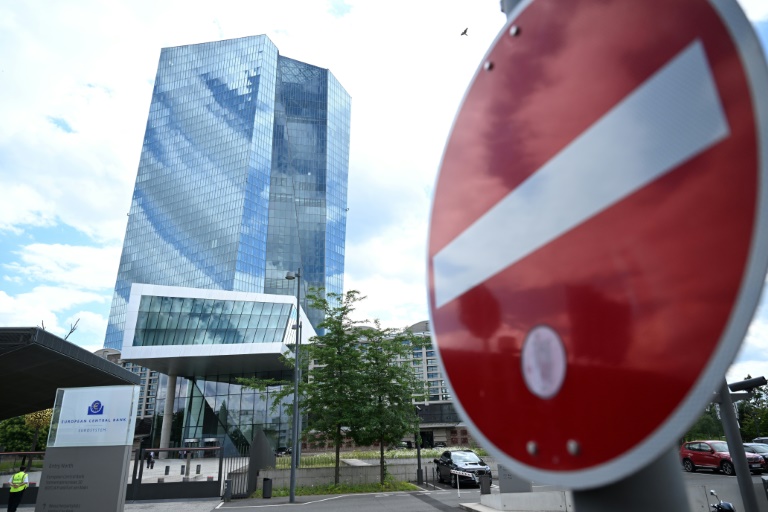Analysts expect the ECB to keep interest rates on hold for some months (Kirill KUDRYAVTSEV)
The European Central bank is expected to hold interest rates steady again this week with inflation under control and US tariff tensions easing, even as France’s political crisis presents a new headache.
It would mark the second straight meeting in which the central bank for the 20 countries that use the euro keeps its key deposit rate on hold at two percent.
The pause follows more than a year of cuts as the ECB pivoted from tackling a surge in inflation to seeking to support the beleaguered eurozone.
Inflation has stabilised in the bloc, hovering around the central bank’s two-percent target in recent months.
“Any change in policy rates would be a big surprise,” analysts at HSBC said in a note on Thursday’s meeting.
In the United States, meanwhile, the Federal Reserve is widely expected to cut rates this month after a long period on hold as it seeks to support the job market, and following sustained pressure from President Donald Trump.
– Lagarde worried about France –
But for the Frankfurt-based ECB, while US tariff tensions have eased after a recent deal, policymakers now face a new headache due to a crisis in France, the eurozone’s second-biggest economy.
Prime Minister Francois Bayrou is set to face a confidence vote Monday over an austerity budget that aims to slash France’s mounting debt, with chances high that he will lose.
ECB President Christine Lagarde last week voiced concern about the risks of the government collapsing, warning that political turmoil in any eurozone country weighs on markets.
“Political developments, and the emergence of political risks, have an obvious impact on the economy, on how financial markets assess country risk, and are therefore a concern for us,” she said in a radio interview.
Last week the turmoil pushed up France’s long-term borrowing costs to their highest level since 2011, when the eurozone was rocked by a debt crisis.
Lagarde is likely to face questions about whether policymakers might use a special mechanism aimed at combating disorderly movements in bond markets.
But ECB officials have so far downplayed this possibility.
Andrew Kenningham, chief Europe economist at Capital Economics, told AFP that he did not expect Lagarde to “say anything meaningful” related to France, and that the crisis was unlikely to impact their rate decisions for now.
An increasingly bleak outlook in Germany, where recent data has dashed hopes of a strong rebound for the eurozone’s biggest economy, may also factor into the ECB’s calculations as they mull their next rate move.
Story Continues
